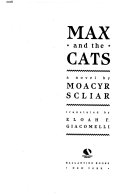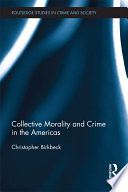Discover our list of authors like Yann Martel who blend reality and fantasy, mirroring Martel’s signature storytelling style.
The genre of adventure fiction, or fantasy fiction, is open to many different variations, much to the delight of its fans. Adventure and fantasy fiction often include storylines with heroic exploits, perilous journeys, and thrilling escapades that take readers out of the everyday and into a fantasy world. It’s escapism at its finest for those who seek thrills from the comfort and safety of their homes.
The fantasy fiction book that launched Canadian novelist Yann Martel into the public spotlight was Life of Pi, specifically when it was adapted into a movie. The book, winner of the Man Booker Prize for fiction, has spent over a year on the New York Times and The Globe and Mail bestseller lists and sold well over 12 million copies in over 50 worldwide territories. Before Life of Pi came several novels and a collection of four short stories. Like many of the best fantasy authors, Martel often uses animals as metaphors for people and personalities.
Must-Read Authors Like Yann Martel
For more fantasy recommendations, you might also enjoy exploring best fantasy authors, authors like Brandon Sanderson, authors like George R.R. Martin, or discover our comprehensive guide to best fantasy authors.
1. David Mitchell, 1969 -
British author David Mitchell tends to combine different genres to produce unique stories and unusual perspectives. His narratives often have multiple layers and intricate plots that withstand numerous reads; there is always something in there that might have been missed the first time. Two of his nine published books have been shortlisted for the Booker Prize, and he has also written or co-written scripts for Netflix.
Cloud Atlas, a multiple-award winning book, is arguably Mitchell’s most well-known work, which was also adapted into a film. Typical of Mitchell’s style, the story has several plots and multiple timelines. This book demands focus to keep track of all the nuances and intricate layers and one that most likely requires more than one read-through to grasp fully.
Mitchell’s genre-blending approach has gained new appreciation in 2025 as readers increasingly seek complex narratives that challenge traditional storytelling conventions. His exploration of how individual actions ripple across time and space resonates with contemporary concerns about interconnectedness and the long-term consequences of human behavior.
“In an individual, selfishness uglifies the soul; for the human species, selfishness is extinction.”
David Mitchell, Cloud Atlas
2. Haruki Murakami, 1949 -
Haruki Murakami is a Japanese author who has received numerous awards, including the Jerusalem Prize, the Franz Kafka Prize, and the World Fantasy Award. His writing style has a surrealistic element that often blurs the line between fantasy and reality. Murakami was raised in Kobe and later attended Waseda University in Tokyo. Western culture heavily influenced and criticized him in his home country for writing too “un-Japanese.”
The Wind-up Bird Chronicles has been described as dreamlike, the quintessential Murakami style. Beneath the haze, a detective story centers around a failing marriage. But it takes place against a backdrop of buried secrets from Manchuria during the Second World War, and mystical elements make this a compelling story that fans of Yann Martel are sure to appreciate.
Murakami’s surreal approach to contemporary life has become increasingly relevant as readers navigate the disorienting effects of digital culture and social media. His ability to find the extraordinary within the mundane speaks to contemporary experiences of alienation and the search for meaning in modern society.
“You’ve got to spend your money for the things that money can buy, not worry about profit or loss. Save your energy for the things that money can’t buy.”
Haruki Murakami, The Wind-up Bird Chronicles
3. Italo Calvino, 1923 - 1985
Born in Cuba to Italian parents, Italo Calvino moved to Italy and joined the Italian Resistance during World War II. Throughout his writing career, he explored various literary styles, including neorealism, postmodernism, and magical realism. Calvino received numerous awards for his contributions to literature, including the prestigious French Legion of Honor. His body of work stands out for its use of inventive storytelling techniques, a quality that makes his narratives even more fascinating to read.
Invisible Cities is one of Italo Calvino’s most popular books (and for a good reason). It has a simple premise - the Kublai Khan is sitting in a garden discussing with the famous explorer Marco Polo, who describes a series of cities he has experienced during his travels. Each of the cities has unique qualities and characteristics, and as Polo speaks, the emperor, who is soon to lose his empire, begins to understand that there is more to the tale than the words themselves. The cities in the book serve as metaphors for human experiences, desires, and memories.
Calvino’s philosophical approach to storytelling has found new relevance in our age of virtual experiences and digital spaces. His exploration of how places shape identity and memory resonates with contemporary discussions about the impact of urban design, environmental psychology, and the meaning of “place” in an increasingly digital world.
“You take delight not in a city’s seven or seventy wonders, but in the answer it gives to a question of yours.”
Italo Calvino, Invisible Cities
4. Paul Auster, 1947 -
After completing his studies at Columbia University, Paul Auster worked many jobs, including as a merchant mariner and translator, to support his writing. In the 1970s, Auster moved to France, where he immersed himself in French culture and literature. This continued to influence his writing and philosophical beliefs for the rest of his life.
In City of Glass, one of Auster’s most famous works, a reclusive crime writer named Daniel Quinn finds himself unexpectedly thrust into the heart of a mysterious and unsettling thriller. A late-night phone call seeking a private detective catapults Quinn into a world where the boundaries of fiction and reality blur. As he delves deeper into his mission, Quinn becomes increasingly consumed by his role, leading to an alarming unraveling of his own sanity.
Auster’s meta-fictional approach and exploration of identity have gained new significance in the era of social media personas and digital identity construction. His themes of chance encounters and the randomness of urban life speak to contemporary experiences of connection and disconnection in modern cities.
“He had continued to write because it was the only thing he felt he could do.”
Paul Auster, City of Glass
5. Jonathan Safran Foer, 1977 -
Jonathan Safran Foer graduated from Princeton University, studying philosophy and literature. During his first year, he took a writing course taught by Joyce Carol Oates, who took a special interest in his writing. Foer later said that Oates was the first ever to make him think he should seriously pursue writing as a career. He has since received critical acclaim and several awards, including the National Jewish Book Award and the Guardian First Book Award.
In his debut novel Everything is Illuminated, Foer weaves two narratives. In one thread, a young man named Jonathan embarks on a journey to uncover his family’s history during World War II. Accompanied by a quirky translator named Alex and his grandfather, they navigate the complexities of the country’s past. The other narrative delves into the fictional history of Jonathan’s ancestors, showcasing the intertwined fates of Jewish communities in Eastern Europe.
The book became a New York Times bestseller, putting Foer on the literary map. Foer’s exploration of memory, trauma, and family history has gained renewed relevance as readers seek to understand historical events and their lasting impact on contemporary life, particularly in discussions about intergenerational trauma and collective memory.
“It was not the feeling of completeness I so needed, but the feeling of not being empty.”
Jonathan Safran Foer, Everything is Illuminated
6. Michael Chabon, 1963 -
Michael Chabon, a recipient of the Pulitzer Prize for Fiction, has led a distinguished literary career since he first became a writer at age ten. Interestingly, Chabon is also known for his work as an executive producer for a well-known television series, Star Trek: Picard. Chabon also holds a Master of Fine Arts from the University of California at Irvine.
Chabon’s The Amazing Adventures of Kavalier & Clay is set against the backdrop of the Second World War and tells about the journey of Josef Kavalier and Sammy Clay. Josef, a young artist who has escaped Nazi-occupied Prague, and Sammy, a Brooklyn native, create a comic book character called “The Escapist.” The narrative weaves around their endeavors, personal battles, and transformations in an America grappling with war.
Chabon’s integration of popular culture and literary fiction has become increasingly important as boundaries between “high” and “low” culture continue to blur. His work demonstrates how genre fiction can address serious themes, reflecting contemporary trends in storytelling that embrace both entertainment and literary depth.
“Never worry about what you are escaping from,” he said. “Reserve your anxieties for what you are escaping to.”
Michael Chabon, The Amazing Adventures of Kavalier & Clay
7. Julian Barnes, 1946 -
Julian Barnes, a winner of the Man Booker Prize, is recognized for his significant contributions to contemporary literature. In addition to his acclaimed writing, Barnes has a background in lexicography and has utilized his linguistic expertise to translate various works from French into English. As a passionate Francophile, Barnes has also served as a member of the Anglo-French arts jury.
The History of the World in 10-1/2 Chapters is like a collection of seemingly unrelated stories, all told in varying styles and perspectives. From an alternative account of Noah’s Ark to the journey of a woodworm to a contemporary story of love and loss, Barnes offers a unique perspective of history that challenges standard perceptions of truth and reality.
Barnes’ postmodern approach to historical narrative has gained new appreciation in an era of questioning traditional narratives and exploring alternative perspectives on established truths. His work resonates with contemporary discussions about the nature of truth, the reliability of historical accounts, and the power of storytelling to shape understanding.
“They put the behemoths in the hold along with the rhinos, the hippos and the elephants.”
Julian Barnes, The History of the World in 10-1/2 Chapters
8. Salman Rushdie, 1947 -
Salman Rushdie is a highly-respected author honored with the Man Booker Prize, among other writing awards. Aside from his literary accolades, Rushdie was famously involved in a global controversy, which resulted in him living in hiding and under police protection for several years while there was a price on his head. In recognition of his contributions to literature, Rushdie was knighted by the Queen of England in 2007. Rushdie has held several teaching positions, most recently at New York University.
In Midnight’s Children, Rushdie writes about Saleem Sinai, who is born at the exact moment India gains independence. He and the other 1,000 children born within that same hour are endowed with supernatural abilities. Saleem, who has telepathic powers, attempts to unite these midnight children. In paralleling the lives of the children with the political and social events in India, Rushdie weaves an intricate tapestry of the personal and the political, blurring the boundaries of fact and fiction.
Rushdie’s blend of magical realism with political commentary has become increasingly relevant as readers seek fiction that addresses global political complexities. His exploration of postcolonial identity and cultural hybridity speaks to contemporary experiences of globalization, migration, and cultural identity formation.
“To understand just one life, you have to swallow the world. I told you that.”
Salman Rushdie, Midnight’s Children
9. Jeanette Winterson, 1959 -
An influential literary figure who writes in a way that may appeal to fans of Yann Martel, Jeanette Winterson has been awarded the Lambda Literary Award twice. Before becoming an acclaimed writer, Winterson worked in retail, once operating an organic food shop in London’s Spitalfields Market. She served as a professor of creative writing at the University of Manchester and has held the position of New York Public Library’s Library Lion.
Oranges Are Not the Only Fruit is a semi-autobiographical novel about Jeanette, a young girl adopted by a fiercely religious mother in a small English town. Jeanette’s mother intends for her to become a missionary, but as the young girl grows and eventually discovers her sexuality, she clashes with her mother’s expectations. This coming-of-age story is both heartfelt and humorous. The book covers themes of religion, love, and the search for self-identity.
Winterson’s exploration of identity, sexuality, and religious conflict has gained renewed relevance in contemporary discussions about LGBTQ+ rights, religious freedom, and personal authenticity. Her ability to blend humor with serious themes appeals to readers seeking stories that acknowledge both the pain and joy of self-discovery.
“Once, when I was collecting the black peas, about to about to go home, the old woman got hold of my hand.”
Jeanette Winterson, Oranges Are Not the Only Fruit
10. Margaret Atwood, 1939 -
Margaret Atwood is a distinguished author, recipient of the Arthur C. Clarke Award and the Governor General’s Award. Aside from her award-winning literary career, Atwood is a well-known environmental activist. She was a founding member of the Writers’ Trust of Canada, a non-profit organization that seeks to encourage Canada’s writing community. Atwood has taught at multiple universities and has served as the President of the International PEN, an association of writers.
The Handmaid’s Tale is set in a dystopian future where a totalitarian regime has overthrown the United States government; the novel follows Offred, a Handmaid assigned to bear children for elite couples that have trouble conceiving. It’s an exploration of gender, power, and the various ways in which women can resist oppressive systems.
Atwood’s speculative fiction has proven remarkably prescient, with many of her dystopian visions finding uncomfortable parallels in contemporary politics and social developments. Her work has become increasingly relevant as readers seek fiction that helps them understand and process current political and social challenges while offering hope for resistance and change.
“Better never means better for everyone, he says. It always means worse, for some.”
Margaret Atwood, The Handmaid’s Tale




